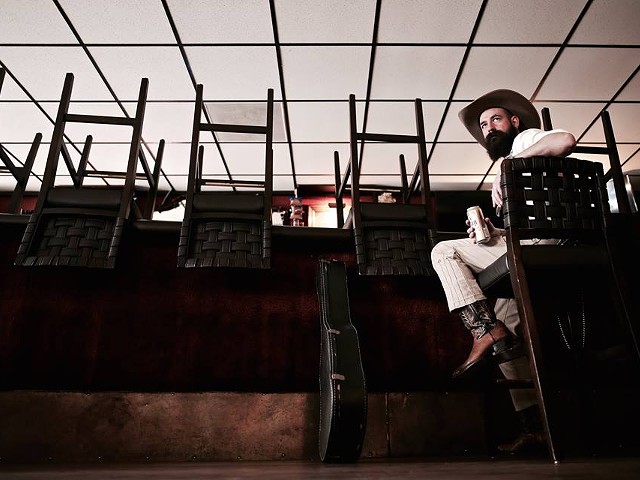When Natalie Mering is on tour in Europe, she'll often attend Sunday church services just to hear the music. It makes sense, then, that she writes songs fit for a cathedral.
"It's a natural inclination," she says, "an appreciation for that kind of beauty, you know?"
The 29-year-old songwriter and multi-instrumentalist — better known by her stage name, Weyes Blood — spoke with the Riverfront Times ahead of her September 22 show at the Peabody Opera House with Father John Misty. She explains that her exposure to church music started young. Her parents are hippies who got swept up in the Born Again Christian movement in the 1970s, and her childhood home in Doylestown, Pennsylvania, was loving, cultured and musical. Since she was gifted with an otherworldly, rafter-raising singing voice, her parents encouraged her to join choir.
But with religious life came some restrictions. Certain things were strictly disallowed — specifically TV shows like The Smurfs and The Care Bears.
"There was some weird Christian reasons why they weren't good cartoons for us to watch," she says. "Care Bears were too, like, hippie-communist, and Smurfs were homosexual because there is only one female Smurf."
Despite her appreciation for the music, Mering could hardly be described as devout. The hairline fractures she saw in the religious construct as a child grew into chasms as she got older, especially regarding homosexuality.
"That was the biggest thing for me, I think," she says. "I was like, 'How could God not want there to be gay people? It's the perfect solution for overpopulation!'"
At fourteen, Mering expressly denounced Christianity and started performing under the name Weyes Blood. "I kind of wiggled my way out of it, and my folks were pretty bummed about it, but they both had secular backgrounds," she says. "So, they let me set myself free at a certain point."
Most of her twenties have been spent touring and making music, including her self-released debut album The Outside Room (2011) and follow-up The Innocents (2014) on Brooklyn-based indie label Mexican Summer. The latest of Weyes Blood's albums, last year's widely acclaimed First Row Seat To Earth, is a consistently melancholy, at times gut-wrenching breakup record. On the achingly sad "Seven Words," she sings: "Who am I but a stranger who took you down?/It's starting to burn and I wanna go home/Only home I've known, lost in the storm."
Having played her heartbreak songs on tour in the U.S. and Europe for the past year, however, Mering says she's processed that phase of her life and moved on.
"I've written some songs in the past that were too sad to sing all the time," she says, "but these songs I intentionally wrote to be a freeing experience, and not something where I'm harboring any kind of resentment. I've turned the songs themselves into a kind of therapy, and they don't really traumatize me.
"I get into an emotional space that's more universal and less about the specific person," she adds.
In fact, she's already facing forward and working on new material. As a student of popular music history, she draws inspiration from old-school songwriters like George Gershwin, and on her next album — tentatively due for release next year — she says she'll explore "the long-forgotten art of the refrain."
"It's sometimes used in modern music, but it's really rare," she says. "It's basically a song that doesn't have a chorus. I've found that really inspiring to look back and see, structurally, how much popular music has changed, and I'm trying to kind of meld the old-world pop music with the future."
She's finished writing the as-yet untitled new album and is set to enter the studio next year, though she's sure it will take on a different form once it's all said and done.
"A lot of things will get chopped, other things will manifest out of the ether," she says. "It always ends up being a bit different from what you set out to do. I have an album's worth of songs, but whether or not they all make it on the album ... we'll see."
And it's always possible that Mering writes more music before she enters the studio with her band. Inspiration typically strikes when she's emotionally vulnerable — like when she's hiding under a blanket in the tour van, far from home and the drab community churches of her childhood, thinking about life on the road.
"That's usually when the honesty comes out," she says. "Any time I try to force something, it doesn't end up being as genuine. I'll have these moments of clarity where I'm open to myself.
"It's like you suddenly become aware of a song that already exists in your subconscious, and now it has a path to come out."






